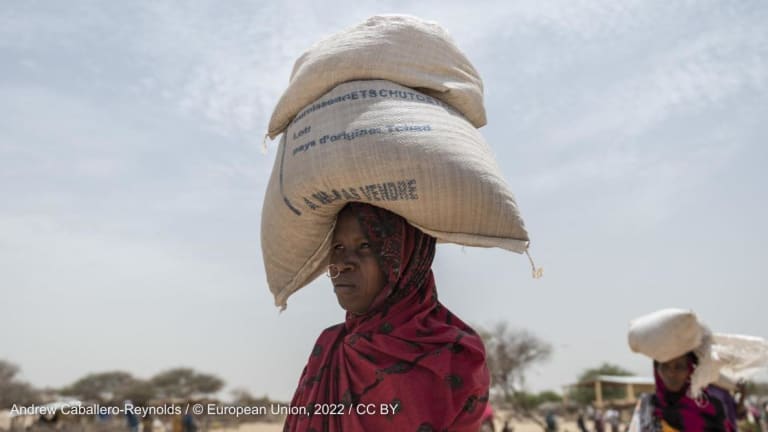Humanitarians, on your mark.
The number of people at risk from climate-related disasters is set to explode. A study by British aid organization Oxfam predicted the figure will surge more in the next six years than it has in the past 30 – from 121 million in 1980 to 243 million today, and to a frightening 375 million people affected by extreme weather events each year by 2015.
"Climate change is set to overload the humanitarian system and destroy the lives and livelihoods of people today and into the future," Oxfam Chief Executive Barbara Stocking said at an event to release the report. "The system can barely cope with the current level of disasters and could be overwhelmed."
Huge populations across the developing world are vulnerable to disasters, and that's where future weather events will cause the greatest damage. The report estimated that an average of 23 people die when disasters hit rich countries, while the number for the least developed countries is 1,052.
Oxfam thus urged donors to ramp up global humanitarian aid from the current $14 billion to about $50 billion a year, to be used for building up the capacity of governments and civil organizations. The report, "Right to Survive," also called for a significant expansion of the humanitarian aid system and improvement of needs assessment and response times.
For anyone considering a humanitarian career, this news has a silver lining. In the coming decade, humanitarian professionals – experts in needs assessment, logistics, capacity building and financing, in particular – will be in greater demand than at any time in history. The sector got its first think tank just this past February, with the launch of the International Humanitarian Studies Association in the Netherlands.
The opportunity is also there to innovate and fill the relief gaps, perhaps with a startup along the lines of the Darfur Project, which delivered ‘lightning relief' to that war-torn stretch of western Sudan last year.
That effort addressed two of the complaints mentioned in Oxfam's report.
"The items delivered matched field needs because of a prior consultation with field workers; and the airlift straight to Nyala, in south Darfur, bypassed bureaucratic impediments and other delays that usually make timely deliveries impossible," said International Medical Corps country director Dr. Solomon Kebede.
But if you do go into humanitarian work, there are a few things to keep in mind. Because its impact on your life will be profound, you need to be sure of your motivations. You need to decide early on if this is a long-term career decision or a short-term fling, and map out a possible course. This work can be exhausting and peripatetic, and will likely strain relationships with friends, family and other loved ones, as well as require astonishing flexibility and decreased personal space. But it will also deliver considerable rewards.




